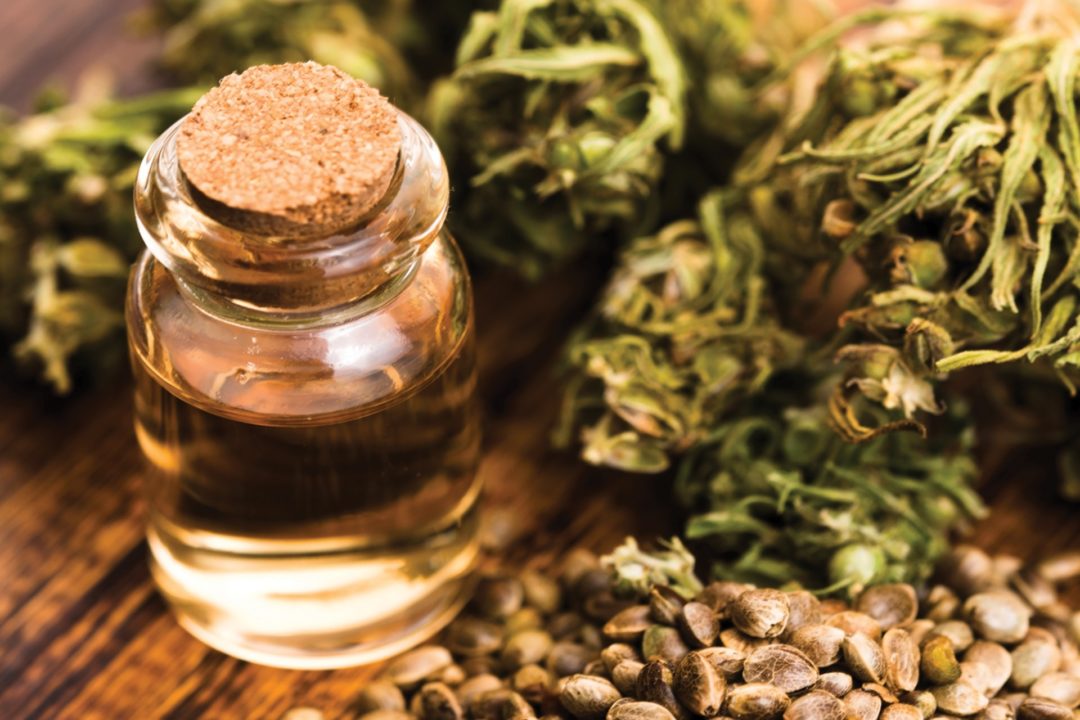Cheryl Myers, chief of scientific affairs and education at EuroPharma, Inc., maker of the Terry Naturally and EuroMedica brands, based in Green Bay, WI, agrees. “Any time any product becomes incredibly popular you are going to see all kinds of people trying to jump on that bandwagon. It’s important to work with legit companies. If people are cheated and they don’t get the benefits, then they walk away from our industry and say, ‘I thought it was all a bunch of hoopla anyway.’” Work with companies that have a lot of expertise in the dietary supplement industry and know how things are created, analyzed, packaged, labeled and promoted, she urges. “We want to make sure we don’t do harm. We want to make sure our retailers are covered as well, that they are not selling something that if it’s analyzed there’s going to be a problem with it.”
Here, key questions retailers need to ask before agreeing to work with a company:
1. Is the hemp oil used in the product a certified strain that’s been used for human use?“While the U.S. has been in the dark ages,” Germano says, “Canada and Europe have been cultivating and consuming. The EU Commission has a certified seed bank of strains of true industrial hemp that have been used for human use.”
2. Can I get a DNA analysis that the strain used in this product was true industrial hemp and not a marijuana hybrid?Germano explains, “From a legal standpoint DEA would be very interested if marijuana was used to make a strain. The USDA will be very interested in strains that have not been used for human use.” Steve Shapiro adds another concern: “While industrial hemp has been grown in Europe for some time, growing in the United States is only beginning large scale since the December 2018 passage of the Farm Bill. I question how so much industrial hemp was so quickly available to meet the sudden demand for CBD. There have been stories of products containing synthetic CBD, which may be dangerous, as well as companies using marijuana as the CBD source, instead of industrial hemp. If a product uses a ‘hemp’ ingredient that contains greater than 0.3% THC it is still a controlled substance under Federal law and many state laws and anyone selling or possessing such products could face potential liability.”
3. Do you have documentation that every single batch is analyzed to be less than 0.3% THC?“It’s very important when using a full spectrum hemp oil to make sure you are working with a company that can provide you with documentation whenever needed that every single batch is analyzed to be less than .3 THC,” Myers cautions. Jake Black, chief scientific officer of Treehouse Hemp, in Longmont, CO, adds, “Make sure to see the COA...As soon as it goes above 0.3%, it is a marijuana product.”
4. What farming practices are used to grow the crop?“Many farmers still use pesticides on their crops and hemp, in particular, has a propensity for absorbing whatever is in the soil it’s grown in,” Grace Kaucic, digital marketing specialist at Bluebird Botanicals says. “This can include heavy metals, mycotoxins, microbial life and residual chemicals.” She suggests looking for companies that grow their hemp locally in the U.S. using organic farming practices with extensive testing to ensure their products are free from contaminants. Along with heavy metals and pesticide analysis, Black adds residual solvents. If companies are not willing to give you information on all that, he says, that should be a big red flag. “Retailers should ask the manufacturers who should be getting all of that from suppliers. Then you can say, ‘It was grown on this farm, it tested free of all these heavy metals and pesticides and solvents, and it has the right amount of CBD and other cannabinoids.”
5. Can you provide third-party batch testing on all the products to ensure they deliver what is advertised?“Recent consumer research has revealed that many CBD manufacturers falsely label their products, claiming they contain more cannabinoids than they actually do,” Kaucic says. “Some products don’t even contain cannabinoids at all. To verify the quality of products, retailers should ask for third-party batch testing.” Absolutely, Black adds, make sure you are getting what you paid for. “If it’s full spectrum, if they are telling you other cannabinoids are in there and that’s what you’re paying for, make sure you see it on the COA. If you’re paying for terpene, make sure you see that.”
6. Do you have a third-party cGMP certification or other evidence that the product was manufactured in a cGMP compliant facility?Does the product label accurately communicate to consumers what is in the product, including the levels of marker compounds like CBD? Does the company comply with FDA Adverse Event Reporting requirements? “Retailers need to ensure they are selling a legal product, which means these products are required to be compliant will all aspects of food and supplement regulation to avoid liability,” says Duffy MacKay, senior vice president of scientific and regulatory affairs at San Diego-based CV Sciences, makers of PlusCBD Oil. “If a hemp derived CBD product is not in compliance with FDA regulations, the product is an adulterated product and creates a liability for the retailer.”
7. What differentiates your product? How versatile is your product?“The tendency among some retailers is to load up and stock as many brands and products when a category is red hot,” Rob Maru, founder and co-CEO of Planted Earth in Livingston, NJ, notes. “With CBD it appears consumers are less brand loyal and are simply looking for high quality products that meet their needs. This is precisely why we launched a powder form that can be utilized in just about anything. I would caution retailers to look for products that differentiate and avoid redundancy which often leaves consumers confused.”WF










